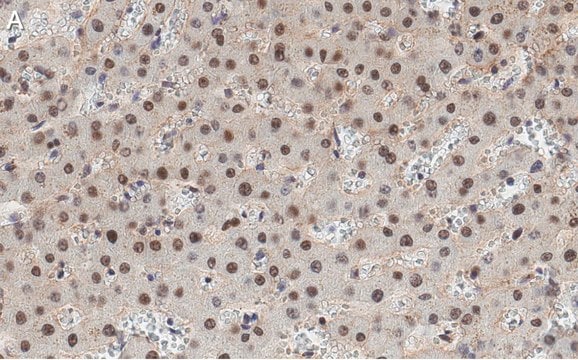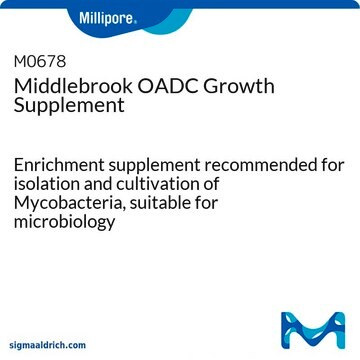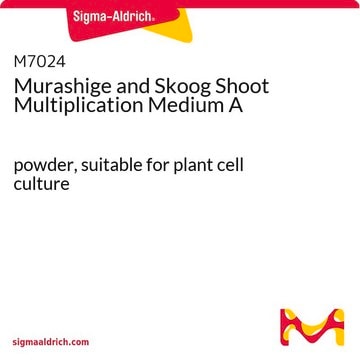H0665
Monoclonal Anti-Hepatocyte Growth Factor antibody produced in mouse
clone 24516, purified immunoglobulin, lyophilized powder
Synonyme(s) :
Anti-HGF
About This Item
Produits recommandés
Source biologique
mouse
Niveau de qualité
Conjugué
unconjugated
Forme d'anticorps
purified immunoglobulin
Type de produit anticorps
primary antibodies
Clone
24516, monoclonal
Forme
lyophilized powder
Espèces réactives
human
Technique(s)
capture ELISA: 2-8 μg/mL
western blot: 1-2 μg/mL
Isotype
IgG1
Numéro d'accès UniProt
Température de stockage
−20°C
Modification post-traductionnelle de la cible
unmodified
Informations sur le gène
human ... IL4(3565)
Vous recherchez des produits similaires ? Visite Guide de comparaison des produits
Description générale
Monoclonal Anti-Hepatocyte Growth Factor recognizes human HGF. The antibody shows less that 0.25% cross-reactivity with recombinant human Macrophage Stimulating Protein (MSP).
Immunogène
Application
Forme physique
Clause de non-responsabilité
Vous ne trouvez pas le bon produit ?
Essayez notre Outil de sélection de produits.
Produit(s) apparenté(s)
Code de la classe de stockage
13 - Non Combustible Solids
Classe de danger pour l'eau (WGK)
WGK 1
Point d'éclair (°F)
Not applicable
Point d'éclair (°C)
Not applicable
Équipement de protection individuelle
Eyeshields, Gloves, type N95 (US)
Certificats d'analyse (COA)
Recherchez un Certificats d'analyse (COA) en saisissant le numéro de lot du produit. Les numéros de lot figurent sur l'étiquette du produit après les mots "Lot" ou "Batch".
Déjà en possession de ce produit ?
Retrouvez la documentation relative aux produits que vous avez récemment achetés dans la Bibliothèque de documents.
Notre équipe de scientifiques dispose d'une expérience dans tous les secteurs de la recherche, notamment en sciences de la vie, science des matériaux, synthèse chimique, chromatographie, analyse et dans de nombreux autres domaines..
Contacter notre Service technique








